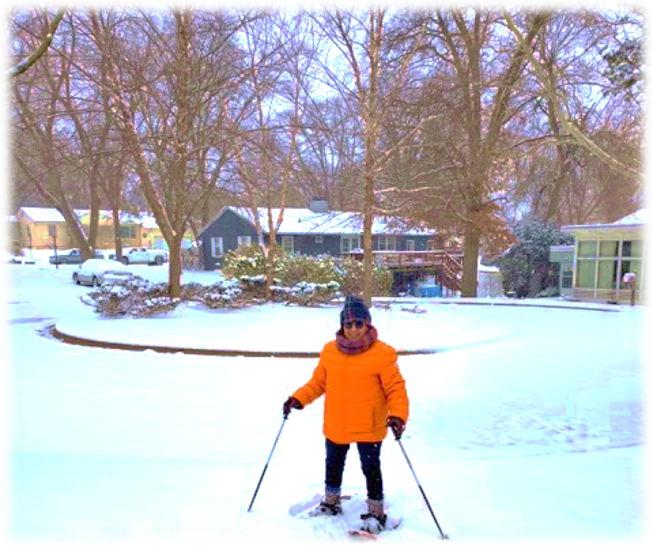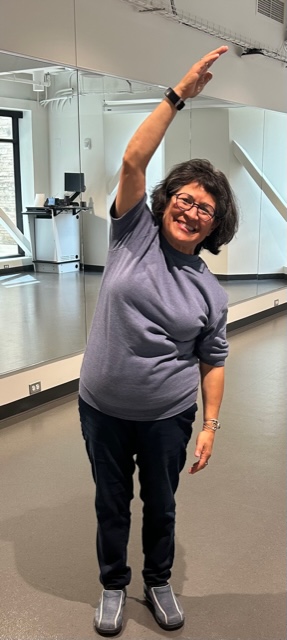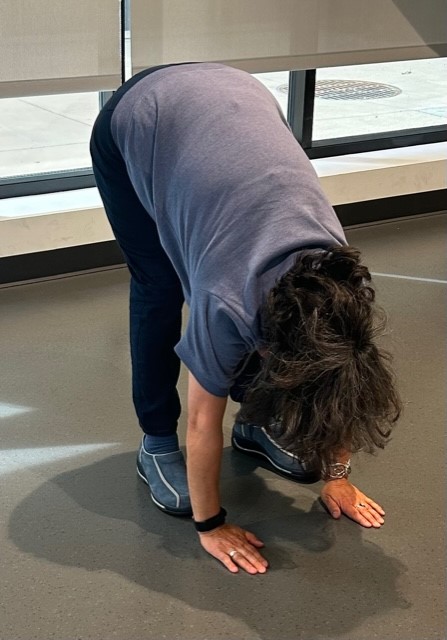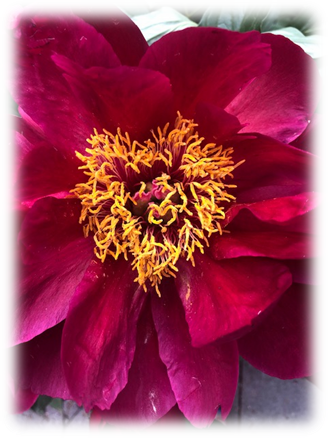Now that we’re shedding out winter blankets, in the Northern Hemisphere, it’s time to think about warmer weather. Often times, we tend toward a more sedentary life in winter weather. That means we may gain a few pounds, lose a little muscle mass, and our motivation decreases. How do we keep this all in line so that we experience optimal health year around? My answer? Holistic Self-Care.
About a month ago, I reached my 66th birthday. The day before my 66th year, I taught a self-care class for my co-workers. It was fun. I called it, “Finding Hygge and Other Emotional Well-Being Concepts.” I’ve written about hygge and other forms of coziness in previous blog articles. I had a co-worker take the picture you see in the “featured image.” That was for my “Meet Your Presenter” slide in the power point for my workshop.
Let’s get started.

I offer this lovely image that I call, “Sunset on the Flinthills” as a gentle reminder for you to bring the natural world into your time reading this and for engaging in self-care practices. Here are some learning objectives:
- Self-advocacy promotes equity and belonging
- Health and well-being practices promote physical, emotional, social, and occupational well-being
- Long-term outcomes include increased confidence and overall well-being
“When we cultivate environments of well-being, we see each other as holistic beings who seek fulfillment through work, leisure time, and personal or professional development. We strive to engage in self-care when necessary and without judgment.” -Bolton
Let’s Breathe
I borrowed this image from social media promoting a Mastery of Self, a book by don Miguel Ruiz Jr.:

- Sit quietly with all distractions muted as best as possible.
- Circle arms above head while inhaling – then exhale. Do this 8 times.
- Breathe in through your nose and out through your mouth: 8x
- Inhale to the count of 5 – Exhale to count of 5: 8x
- Place your hands on your diaphragm and breath out with a loud “ho!”: 8x
What is Holistic Health and Well-Being?
When we think of when we humans are at our best, there are many needs that must be met. I could bring in Maslow’s Hierarchy of Human Needs, here, but you likely know what those are, and this reflects that, too. I think most humans work toward self-actualization. Here is what we need:
- Physical needs – Food, clean water, oxygen, elimination, clothing/shelter, sleep, and movement/activity for sensory and motor stimulation
- Mental/psychological needs – attachment, orientation/control, self-esteem, pleasure, and avoiding pain
- Spiritual needs – Meaning, purpose, to love, and to be loved
- Social needs – Relationships, belonging, respect, affirmation
What under-girds each of these human needs, of course, is SAFETY?
Safety means, security of body, employment, resources, our moral codes, any type of family, optimal health, and a place of one’s own. Can you image what happens to humans who do not have the privilege of holistic health and well-being? Can you imagine what happens to the human psyche when one is displaced due to war, poverty, colonization, or no job opportunities?
We must feel safe and affirmed in any space in which we navigate. All of these needs move forward once safety has been met.
On another note of importance, we must understand others’ identities and how those identities may contribute to feelings of non-safety when others view them as lesser than, who don’t belong, or somehow don’t fit in. Remember, there are those who do not feel safe in certain environments. That happens when basic human needs are not met. Abraham Maslow was absolutely correct when he talked about basic human needs as critical to thriving.
Our Own Cultural Behaviors Contribute to Our Senses of Work, Rest, and Play
A dominant cultural behavior of the United States is work, work, work. Brené Brown tells us that “crazy busy is a great armor. It’s a great way for numbing. What a lot of us do it that we stay so busy, and so out in front of our life, that the truth ow how we’re feeling and what we really need can’t catch up with us.” I see this in my work place when my colleagues boast that, “I’m losing vacation days, because I don’t use them!” Unfortunately, that is an ethos that is honored in my work place. That is the opposite of praising for self-care.

Think About You:
- What are some things you do to wind down after a hard day at work?
- What are ways in which you balance work and rest?
- Is “winding down” a practice you do?
Most of us are not in survival mode nor are we in subsistence mode. We tend to forget about “self-care” mode. Let’s change that practice!
Let’s Stretch
- Stand tall and reach for the sky with a full inhalation. Drop your arms as you exhale. 8x
- Stand tall and reach from side to side over your head. You will cross your right arm over to your left side and vice versa. 8 x
- Stand tall and reach for the sky. Take deep breaths. Reach up, and then bend to touch the floor. 8x
- Now, squat low and stretch your inner thighs to a ten count on each side. 8x






Take This Moment to Reflect
•What gifts or talents do you possess?
•What new characteristic did you discover about yourself recently?
•What are you grateful for?
–Looking to the future
•Which value or action would bring you closer to a vibrant way of living?
•If you have or would design a personal ritual, what would it be?
•Have you found a way to focus on your successes?
•What kind of person do you strive to be?
•Have you ever thought of naming what you want your life to be as a chapter in a book?
What is Mental Health?
“…a state of well-being in which the individual realizes [their] own abilities, can cope with the normal stresses of life, can work productively and fruitfully, and is able to make a contribution to [their] community.” (WHO, 2004, p.12)
= positive capacity
= social and emotional wellbeing
= behavior, thoughts and emotions
≠ mental ill-health*
≠ happiness
Open dialogue on Mental Health
In you own words, what does the phrase “Mental Health” mean to you? What definitions/connotations does this phrase evoke?
Mental Health Defined
Its important to recognize that mental health encompasses our recognition of adapting ourselves to our surroundings in a way the promotes our well-being, while still acknowledging the experience. I say this to note that mental health isn’t singularly about being “happy” (especially not all the time). That is an unrealistic or attainable standard for mental health and ignores that we utilize all of our emotions to make sense of our experiences.
Prioritizing mental health ensures we are taking the necessary steps to alleviating those stresses while retaining our functionality in life. We see this in
-Driving personal development
-Seeking out and maintaining relationships with others
-Positive & Affirming
-Speaking Up when in need / communicating our concerns/problems to others who can help
-Expressing our Emotions
-There is no such thing as a “bad” emotion, its how we understand them and express them
-We all feel sadness, anger, joy, etc. We need to see all emotion as natural, but learn how to cope with them as they come
-Last example is a continuation of development
-When we stop problem solving, or setting goals we can slip into states of ill-health that can perpetuate the stresses we are experiencing
So now, what is ill-health?
How Do We Maintain Our Balanced Mental Health?
Personal Development
Positive/Respectful Relationships
Open Communication
Identify/Understand/Expressing Emotions
Setting Goal / Problem Solving / Taking Responsibility

So, Then Ill Mental Health May Be…
“… a spectrum of problems that interfere with an individual’s cognitive, social, and emotional abilities including both ‘mental health problems’ & ‘mental illnesses’”
Reflect
Stress is a normal response to situations
It includes both eustress (“good” stress) and distress (“bad” stress)
Stress responses vary based on the person
What does stress look like during an infectious disease outbreak?
Fear or worry about your own health
Fear or worry about the health of a loved one
Changes in sleep or eating patterns
Difficulty sleeping or concentrating
Worsening chronic health problems
Increased use of alcohol, tobacco, or other drugs
Stress can impact your body, thoughts, feelings, and behaviors- it can effect so much!
Body- headaches, muscle tension, chest pain, tiredness, upset stomach, etc.
Mood (including thoughts and feelings)- anxiety, restlessness, lack of motivation, feeling overwhelmed, irriability or anger, sadness or depression
Behavior- changes in appetite, angry outbursts, drug or alcohol misuse, tobacco misuse, social withdrawal, exercising less often
Self-Care is More Than a Hot Bath or Taking a Day from Work

Here are two quotes from researchers who study human behaviors in societies that push for power and material wealth.


Thank you for reading me. I hope this can be a nice road map for returning to a healthy way of life.

Namaste!